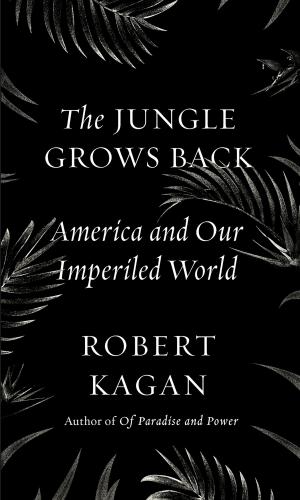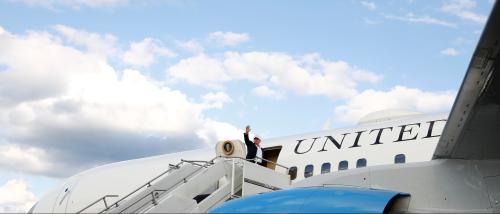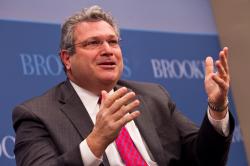Welcome to the breakdown of the liberal world order the United States once upheld. You’re seeing just the beginning, writes Robert Kagan. This piece was originally published in the Washington Post on October 9.
Sometimes a particular event, the fate of a particular individual, becomes a symbol of a global, historical trend. The reported murder of the Saudi journalist Jamal Khashoggi, a Post contributor, in a consulate in Istanbul is one of those moments. It symbolizes the departure of the United States as a restraining force against evil actors in the world. Saudi Arabia is a small nation that cannot defend itself without the support of the United States, and therefore no Saudi leader would have made such a brazen move without confidence that Washington, once the leader of the liberal world order, would do nothing.
There have been many other similar warning signs: China’s arrest of the head of Interpol; the Burmese military’s campaign of genocide against the Rohingya; the systematic and deliberate slaughter of civilians in Syria, including by outlawed chemical weapons; the Russian invasion of Ukraine and seizure of Crimea. Nor is the rise of right-wing nationalist forces in Europe and elsewhere unrelated to the loss of strength and vitality among the democratic nations. Doubts about America have been reverberating across the globe for more than a decade, and others have been responding accordingly. When Hungarian Prime Minister Viktor Orban spoke out to celebrate the “illiberal state” a few years ago, he claimed he was only responding to new realities: “the great redistribution of global financial, economic, commercial, political and military power that became obvious in 2008.”
So welcome to the breakdown of the liberal world order the United States once upheld. You’re seeing just the beginning.
World order is one of those things people don’t think about until it is gone. That’s what Americans learned in the 1930s, as what had remained of the old European order collapsed and the United States refused to step in either to prop it up or to replace it. That’s when Americans discovered that there are always dangerous people out there, lacking only the power and opportunity to achieve their destiny. They can be suppressed by a reasonably stable international order, whether of a Rome, a united Christendom, a European concert of powers or whatever might pass for “civilization” at a given time and place.
During such times, they live under the rocks, but they are never gone. When the prevailing order breaks down, when the rocks are overturned, the things living beneath them, the darkest elements of the human spirit, crawl out. That was what happened in the first half of the 20th century. The circumstances in which Hitler, Stalin and Mussolini rose to power—a world in which no nation was willing or able to sustain any kind of international order—gave them ample opportunity to show what they were capable of. Had there been an order in place to blunt those ambitions, we might never have come to know them as tyrants, aggressors and mass killers.
Today the rocks are being overturned again. Those who have been arguing that we should pull back from the world and show greater restraint tell us we need to accept the world “as it is.” But they have no idea what the world “as it is” really looks like. They grew up inside the bubble of protection provided by U.S. power and the liberal world order it sustained, a world in which other nations were forced to adjust their behavior to those realities of power. Russian behavior was shaped by what Russian leaders believed the United States would or had to tolerate, as well as by their sense of the liberal order’s strength and cohesion. The same was true of China’s behavior, and Iran’s, and Saudi Arabia’s, and that of every other nation or nonstate actor that might seek to disrupt or topple the existing order. All would have behaved differently if America had behaved differently, and so would America’s allies and the rest of the world.
We want to believe that Hitler and Stalin were bizarre products of another era. But the Hitlers and Stalins are all around us, waiting to reveal themselves if given half a chance. Today we know a Vladimir Putin who has grand ambitions but not yet the capacity to realize them. He reveres Stalin, but he is not Stalin. But what would a less constrained Putin be? Today a more powerful China is abandoning the cautious foreign policies of Deng Xiaoping’s weaker China. What will an even less constrained China be like? Who can say whether either of these powers might in time become a threat on a par with those we faced in the past if they are allowed to expand their regional and global influence by military means?
And how quickly might this happen? Quicker than we think. A character in Ernest Hemingway’s “The Sun Also Rises,” asked how he went bankrupt, responds, “Gradually and then suddenly.” That is a fair description of how the world order collapsed before the two world wars, and of how it likely will collapse in our own time. Welcome to the jungle.





Commentary
Welcome to the jungle
What happens when the United States retreats from the world
October 16, 2018